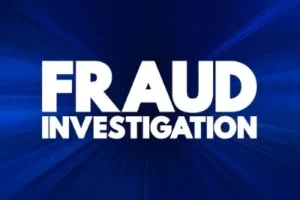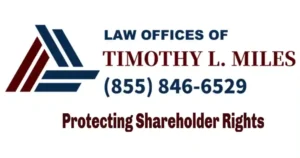Introduction to the Microstrategy Class Action Lawsuit
The MicroStrategy class action lawsuit seeks to represent purchasers or acquirers of MicroStrategy Incorporated d/b/a Strategy (NASDAQ: MSTR; STRK; STRF) securities between April 30, 2024 and April 4, 2025, inclusive (the “Class Period”). Captioned Hamza v. MicroStrategy Incorporated d/b/a Strategy, No. 25-cv-00861 (E.D. Va.), the MicroStrategy class action lawsuit charges MicroStrategy and certain of MicroStrategy’s top executives with violations of the Securities Exchange Act of 1934.
If you suffered substantial losses and wish to serve as lead plaintiff of the MicroStrategy class action lawsuit or just have general questions about you rights as a shareholder, please contact attorney Timothy L. Miles of the Law Offices of Timothy L. Miles, at no cost, by calling 855/846-6529 or via e-mail at tmiles@timmileslaw.com.
Lead plaintiff motions for the MicroStrategy lawsuit must be filed with the court no later than July 15, 2025.
Overview of the Microstrategy Class Action Lawsuit
The MicroStrategy lawsuit centers on allegations of misleading investors through the provision of inaccurate or incomplete information regarding the company’s financial status and operations. Such allegations, if proven true, could result in significant legal and financial consequences for MicroStrategy. You need to grasp the magnitude of these claims and their potential impact on the company’s future.

Understanding the lawsuit requires analyzing the details of the allegations. Investors claim that MicroStrategy’s disclosures were not as transparent as they should have been, leading to financial losses once the truth was revealed. Legal experts are examining whether there was a deliberate attempt to mislead stakeholders, which could lead to punitive measures.
For anyone involved in investing, the MicroStrategy lawsuit serves as a stark reminder of the importance of due diligence and the risks associated with corporate investments. As you navigate through the nuances of this case, consider how transparency and accountability play pivotal roles in maintaining investor trust and confidence in the market.
Allegations in the MicroStrategy Class Action Lawsuit
Since 2020, MicroStrategy has increasingly focused on purchasing and holding bitcoin, a type of crypto-currency, as a long-term business strategy. According to the complaint, on January 1, 2025, MicroStrategy adopted the Financial Accounting Standards Board’s Accounting Standards Update No. 2023-08, Intangibles – Goodwill and Other – Crypto Assets (Subtopic 350-60): Accounting for and Disclosure of Crypto Assets (“ASU 2023-08”), which requires publicly traded companies to measure their crypto assets at fair value in their financial statements, with gains and losses from changes in the fair value of those assets recognized in net income in each reporting period.
The MicroStrategy class action lawsuit alleges that defendants throughout the Class Period made false and/or misleading statements and/or failed to disclose that:
- The anticipated profitability of MicroStrategy’s bitcoin-focused investment strategy and treasury operations was overstated; and
- The various risks associated with bitcoin’s volatility and the magnitude of losses MicroStrategy could recognize on the value of its digital assets following its adoption of ASU 2023-08 were understated.

The MicroStrategy class action lawsuit further alleges that on April 7, 2025, MicroStrategy disclosed that, following its adoption of ASU 2023-08, it recognized a $5.91 billion unrealized loss on its digital assets for the first quarter of 2025, which was expected to result in a net loss for the quarter. As a result, MicroStrategy warned investors that “[w]e may not be able to regain profitability in future periods, particularly if we incur significant unrealized losses related to our digital assets,” according to the complaint.
The MicroStrategy class action lawsuit alleges that on this news, the price of MicroStrategy stock fell nearly 9%.
Reasons Behind the MicroStrategy Class Action Lawsuit
The reasons behind the MicroStrategy class action lawsuit are rooted in allegations of corporate misconduct and misrepresentation. These claims suggest that MicroStrategy may have engaged in activities or made statements that misled investors about the company’s financial health or prospects. Understanding these allegations is vital for assessing the potential outcomes of the lawsuit.

The lawsuit’s foundation lies in the assertion that investors relied on inaccurate or misleading information when making investment decisions. Such claims, if proven, can have significant legal and financial implications for the company and its stakeholders. Investors need to understand the basis of these allegations to evaluate the potential risks and rewards associated with the lawsuit.
By comprehending the reasons behind the MicroStrategy lawsuit, you can better assess how it might affect your investments in MicroStrategy. Whether the claims involve financial statements, business practices, or other corporate actions, understanding the lawsuit’s basis will help you make informed decisions about your involvement and potential next steps.
What is the Lead Plaintiff Process Under the PSLRA?
The Lead Plaintiff Process under the Private Securities Litigation Reform Act of 1995 (PSLRA) is a critical mechanism in securities class action lawsuits, designed to ensure that the most capable and representative plaintiffs lead the litigation. The process begins when a securities class action is filed, often in response to alleged misconduct by a company, such as in cases like the MicroStrategy lawsuit. Upon filing, the court issues a notice to potential class members, inviting them to apply for the role of lead plaintiff. This notice is typically published in widely circulated financial newspapers or online platforms.
Interested parties must file a motion with the court expressing their desire to be appointed as lead plaintiff. The PSLRA mandates that the court select the lead plaintiff who has the largest financial interest in the case and who also meets the requirements of adequacy and typicality under Rule 23 of the Federal Rules of Civil Procedure. In determining financial interest, courts consider factors such as the amount of shares purchased, the net funds expended, and the approximate losses suffered.

Adequacy refers to the ability of the lead plaintiff to fairly and adequately protect the interests of the class members. Typicality means that the claims or defenses of the lead plaintiff are typical of those of the class. For example, in the MicroStrategy lawsuit, potential lead plaintiffs would need to prove significant investment losses due to alleged fraudulent behavior by MicroStrategy.
Once appointed, the lead plaintiff assumes control over major decisions in the litigation process, including selecting and instructing counsel. This role is pivotal as it influences both legal strategy and potential settlement negotiations. The lead plaintiff’s actions can significantly impact the outcome of securities class actions, ensuring that aggrieved investors receive fair representation and compensation for their losses.
What is the Lead Plaintiff Deadline in the MicroStrategy Class Action Lawsuit?
Lead plaintiff motions for the MicroStrategy class action lawsuit must be filed with the court no later than July 15, 2025.
When a securities class action is filed:
- The person who files the first complaint is required to publish a notice announcing the filing.
- Anyone who wants to be the lead plaintiff on behalf of the class must thereafter file a motion to be appointed as lead plaintiff(s) no later than 60 days after the notice was published.
The Benefits of Serving as a Lead Plaintiff in the MicroStrategy Lawsuit
- Negotiating more competitive attorney fees and reducing litigation costs.
- Managing the litigation by overseeing the progress of the case and reviewing important filings.
- Participating in mediation and settlement discussions.
- Having a voice in decision-making processes regarding the settlement.
- No financial risk, as lead counsel covers all costs and expenses and are paid only if they secure a settlement or judgment recovery for the class
- Potentially enjoying long-term benefits from governance reform resulting from the litigation.
The Responsibilities the Lead Plaintiff Will Have in the MicroStrategy Lawsuit
- Selecting, monitoring, and overseeing Lead Counsel.
- Reviewing and commenting on court filings on behalf of the class.
- Discussing litigation strategies with the Lead Counsel.
- Attending depositions (if necessary) and giving a deposition.
- Attending hearings (if necessary).
- Participating in mediation and the trial (if necessary).
- Provide input on any decision concerning the settlement of the securities class action.
The Eligibility Criteria for Lead Plaintiff Appointment in the MicroStrategy Class Action Lawsuit
To be eligible for appointment as the lead plaintiff in the MicroStrategy class action lawsuit, an investor must meet the following criteria:
- Securities Acquisition: The investor must have purchased or acquired MicroStrategy Incorporated d/b/a Strategy (NASDAQ: MSTR; STRK; STRF) securities between April 30, 2024 and April 4, 2025.
- Financial Losses: The investor must have suffered financial losses as a direct result of the alleged securities fraud perpetrated by MicroStrategy and its executives.
- Typicality and Adequacy: The investor’s legal claims must be typical of those asserted on behalf of the class, and they must demonstrate their ability to adequately represent the interests of the entire class through experience, resources, and the absence of conflicts of interest.
It is crucial to note that both domestic and international investors who meet these criteria are eligible to seek appointment as the lead plaintiff in the class action lawsuit, as courts have consistently recognized the rights of non-U.S. investors in securities class actions.
The Legal Requirements for Prevailing in the MicroStrategy Class Action Lawsuit
- Material Misrepresentation or Omission
- Scienter
- Connection to Securities Transaction
- Reliance
- Economic Loss
- Loss Causation
Who is Affected by the MicroStrategy Class Action Lawsuit?
The MicroStrategy class action lawsuit primarily affects investors who purchased shares during the period in which the alleged misconduct occurred. If you invested in MicroStrategy. during this time, you could be part of the affected class and eligible for compensation if the lawsuit succeeds.
Identifying whether you are part of the affected group is crucial for understanding your rights and potential benefits. The lawsuit may involve a specific time frame and set of circumstances that define the class of investors who can participate. Knowing these details will help you determine your eligibility and take appropriate action.
In addition to investors, the MicroStrategy lawsuit can also impact the company’s executives, board members, and other stakeholders. The outcome of the lawsuit could influence MicroStrategy’s reputation, financial stability, and future operations, affecting all parties associated with the company. Staying informed about the lawsuit’s progress is essential for anyone connected to MicroStrategy.
Opting-out of the MicroStrategy Class Action Lawsuit
Opting out of a class action lawsuit involves an individual choosing not to participate as a member of the class. In the context of the MicroStrategy class action lawsuit, this means that a shareholder or other affected party would decide to pursue their own separate legal action rather than be part of the collective lawsuit.
Opting out can be a strategic decision based on various factors such as the desire for greater control over the litigation process, potential for a larger individual settlement, or differing personal circumstances that may not align with the class’s claims.
Tips for Investors to Protect Your Interests
Gathering and Organizing Relevant Evidence
In a securities class action lawsuit just like the MicroStrategy class action lawsuit, evidence is the cornerstone of building a compelling case. For shareholders, gathering and organizing relevant evidence is a critical step in substantiating claims of corporate misconduct.
The evidence typically revolves around documents and communications that demonstrate the company’s misrepresentations or omissions, as well as the financial harm suffered by shareholders. Below are some steps you should take:
- Compile all financial statements, press releases, analyst reports, emails, and any internal documents that shed light on the alleged wrongdoing alleged in the MicroStrategy class action lawsuit.
- Meticulously document your investment history with the MicroStrategy, including dates of stock purchases and sales, quantities, and prices. This information is crucial for calculating damages and proving that the shareholder suffered financial losses as a result of the company’s actions.
- Maintaining detailed records not only strengthens the individual’s position in the lawsuit but also contributes to the overall strength of the MicroStrategy lawsuit, by providing a clear picture of the impact on shareholders.
- Organizing this evidence in a systematic manner is equally important. Shareholders can create a comprehensive file of all relevant documents, categorized by type and date, to facilitate easy retrieval and review by legal counsel.
This preparation not only aids in the efficient prosecution of the MicroStrategy lawsuit, but also demonstrates the shareholder’s commitment and readiness to actively participate in the litigation process.
By thoroughly gathering and organizing evidence, shareholders lay a solid foundation for holding corporations accountable and seeking redress for their financial injuries.
Staying Informed: Monitoring Case Developments
In the fast-paced environment of securities class action lawsuits, staying informed about case developments is crucial for shareholders. As the MicroStrategy class action lawsuit, moves forward, new information and events can significantly impact the strategy and potential outcomes.
MicroStrategy shareholders must actively monitor key milestones, such as court rulings, settlement negotiations, and any changes in the legal landscape. Keeping abreast of these developments ensures that shareholders are well-positioned to make timely and informed decisions.

Effective communication with legal counsel is essential for staying updated on case developments. Attorneys provide regular updates and analyses of the ongoing proceedings, helping shareholders understand the implications of each development. This information is vital for assessing the potential risks and benefits of different courses of action, such as whether to accept a settlement offer or continue pursuing the MicroStrategy lawsuit.
By maintaining open lines of communication with their legal team, shareholders can remain engaged and proactive throughout the litigation process.
Shareholders can also benefit from following news sources and industry reports related to the MicroStrategy class action lawsuit and the defendant company. These sources can provide valuable insights into broader market trends, regulatory changes, and public perceptions that may influence the case. By staying informed, shareholders can better anticipate shifts in the legal and financial landscape, enabling them to adapt their strategies and protect their interests effectively.
In securities class actions, knowledge is power, and staying informed is a key component of successful participation.
Frequently Asked Questions About the MicroStrategy Lawsuit
What initiated the MicroStrategy lawsuit?
The lawsuit was initiated by investors alleging that MicroStrategy provided misleading information regarding its financial health and operations, resulting in financial losses.
How can I join the MicroStrategy lawsuit?
If you purchased shares during the class period and suffered a loss, then you are automatically a member of the class and do not need to do anything at this point unless you are considering moving for lead plaintiff.
What are the potential benefits of a class action lawsuit?
Class action lawsuits allow individual investors to collectively seek justice and compensation, which might be challenging to pursue individually. They also promote corporate accountability.
How long will the lawsuit take to resolve?
The duration of class action lawsuits can vary significantly, depending on the complexity of the case, legal strategies, and whether settlements are reached. It could take several months to years.
Contact Timothy L. Miles Today About a MicroStrategy Class Action Lawsuit
If you suffered losses in MicroStrategy stock, call us today for a free case evaluation about an MicroStrategy Class Action Lawsuit. 855-846-6529 or tmiles@timmileslaw.com (24/7/365).
Timothy L. Miles, Esq.
Law Offices of Timothy L. Miles
Tapestry at Brentwood Town Center
300 Centerview Dr. #247
Mailbox #1091
Brentwood,TN 37027
Phone: (855) Tim-MLaw (855-846-6529)
Email: tmiles@timmileslaw.com
Website: www.classactionlawyertn.com
Facebook Linkedin Pinterest youtube






